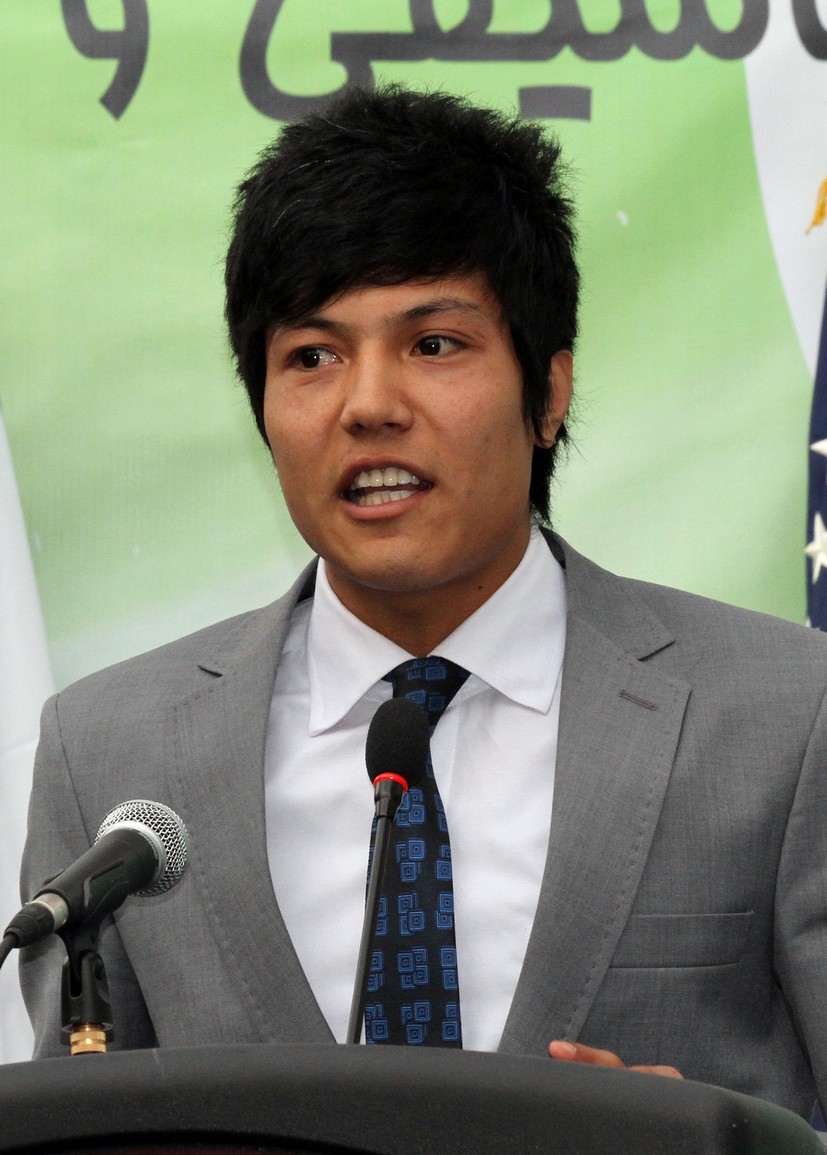1. Early Life and Background
Rohullah Nikpai's early life was significantly shaped by the Afghan civil war and his family's subsequent displacement, which ultimately led him to discover taekwondo.
1.1. Hazara Identity and Refugee Experience
Nikpai is an ethnic Hazara from Kabul, Afghanistan. During the devastating civil war of the 1990s, his family was forced to leave their home in Kabul and seek refuge in Iran. They lived as Afghan refugees in an Iranian refugee camp, facing the widespread challenges and uncertainties common to displaced populations.
1.2. Introduction to Taekwondo
It was within this challenging environment in Iran that Nikpai began his journey in taekwondo at the age of 10. He was inspired to take up the martial art after watching various martial arts films. While in the refugee camp, he became a member of an Afghan refugee taekwondo team, laying the foundation for his future career. In 2004, Nikpai and his family repatriated to Afghanistan. Upon his return to Kabul, he continued his intensive training at the Olympic training facility provided by the Afghan government.
2. Taekwondo Career
Nikpai's competitive journey in taekwondo saw him rise from early international participation to achieving historic Olympic successes, making him a celebrated figure in Afghanistan.
2.1. 2006 Asian Games
As an early step in his international competitive career, Nikpai participated in the 2006 Asian Games held in Doha, Qatar. He competed in the flyweight division, which was the 128 lb (58 kg) category. In the round of 16, he was defeated by Nattapong Tewawetchapong of Thailand, who went on to win the silver medal in the event.
2.2. 2008 Beijing Olympics
Nikpai made history at the 2008 Summer Olympics in Beijing, China. Competing in the men's 128 lb (58 kg) category, he achieved Afghanistan's first-ever Olympic medal. After being defeated by Guillermo Pérez of Mexico in the quarterfinals, Nikpai successfully navigated the repechage rounds. In the bronze medal match, he defeated two-time world champion Juan Antonio Ramos of Spain, securing the historic bronze.
His victory resonated deeply across Afghanistan, transforming him into an instant national hero. Upon his return to Afghanistan, he was met by a crowd of thousands at the airport, celebrating his unprecedented achievement. Then-Afghan President Hamid Karzai immediately called to congratulate Nikpai and subsequently awarded him a house, a car, and other luxuries at the government's expense. Reflecting on his success, Nikpai stated, "I hope this will send a message of peace to my country after 30 years of war."

2.3. 2012 London Olympics
Nikpai continued his Olympic success at the 2012 Summer Olympics in London, United Kingdom. He competed in the men's 150 lb (68 kg) category, where he was defeated by Mohammad Bagheri Motamed of Iran. However, Nikpai once again demonstrated his resilience, winning his second Olympic bronze medal by defeating Martin Stamper of Great Britain in the bronze medal match.
2.4. Afghanistan's Sole Olympic Medalist
As of 2024, Rohullah Nikpai remains the only athlete from Afghanistan to have won any Olympic medal. Both of Afghanistan's Olympic medals across all sports and all Games have been secured by Nikpai, underscoring the profound and singular significance of his achievements for the nation's sporting history and national pride.
3. Post-Retirement Career
Following his distinguished competitive career, Rohullah Nikpai transitioned into coaching, continuing his involvement in taekwondo at an international level.
3.1. Coaching in New Zealand
Nikpai retired from competitive taekwondo in 2017. In 2023, he took on the role of coach for New Zealand's national taekwondo team, bringing his wealth of experience and expertise to a new generation of athletes.
4. Impact and Legacy
Rohullah Nikpai's achievements have left a lasting impact on Afghanistan, establishing him as a national hero and a powerful symbol of hope. His Olympic medals transcended the realm of sport, serving as a beacon of peace and possibility in a country long affected by conflict. His success inspired many young Afghans to pursue sports, demonstrating that even amidst adversity, dedication and talent can lead to extraordinary accomplishments. He is widely celebrated for embodying the spirit of perseverance and for bringing joy and unity to a nation in need of positive narratives.